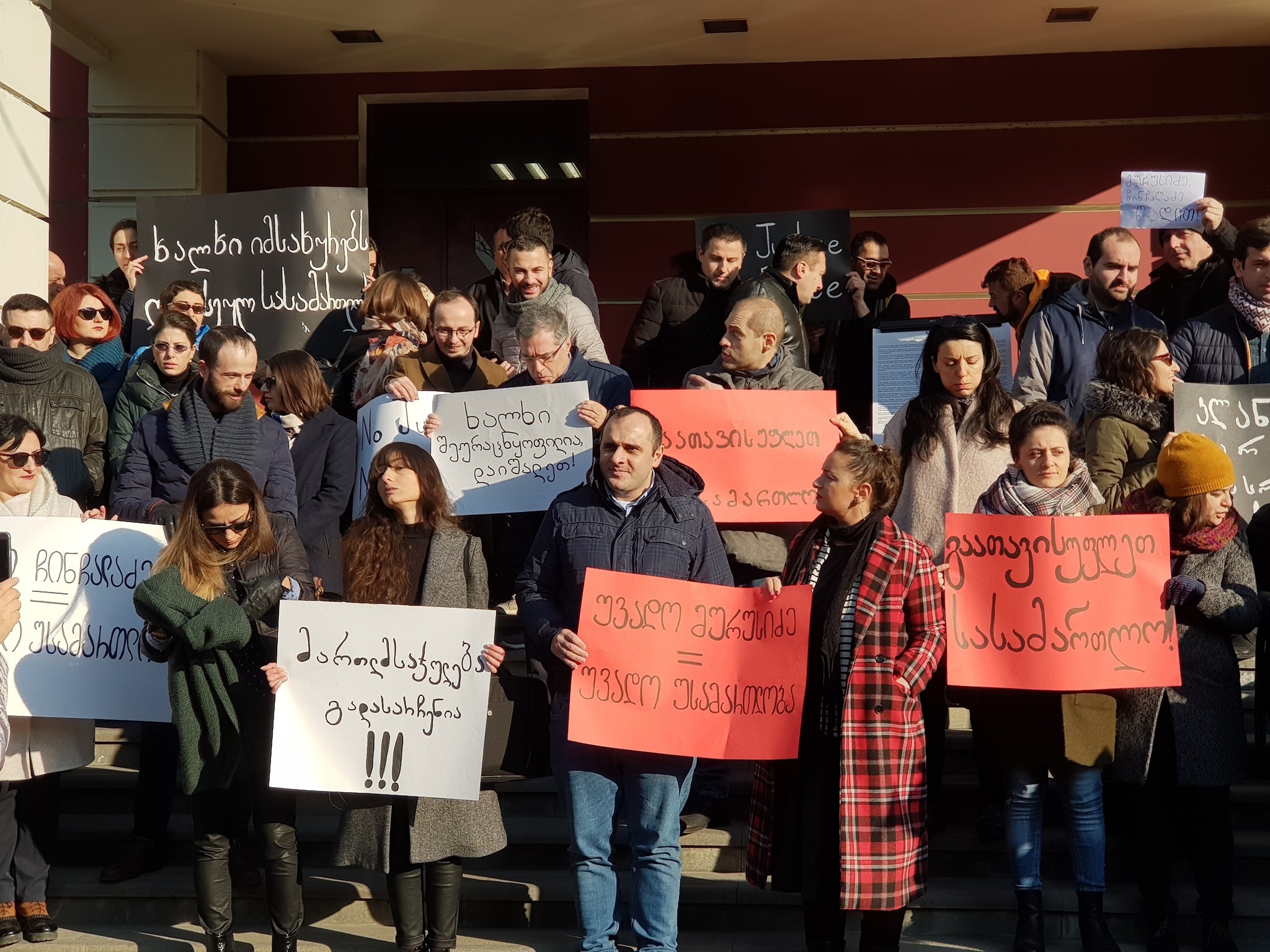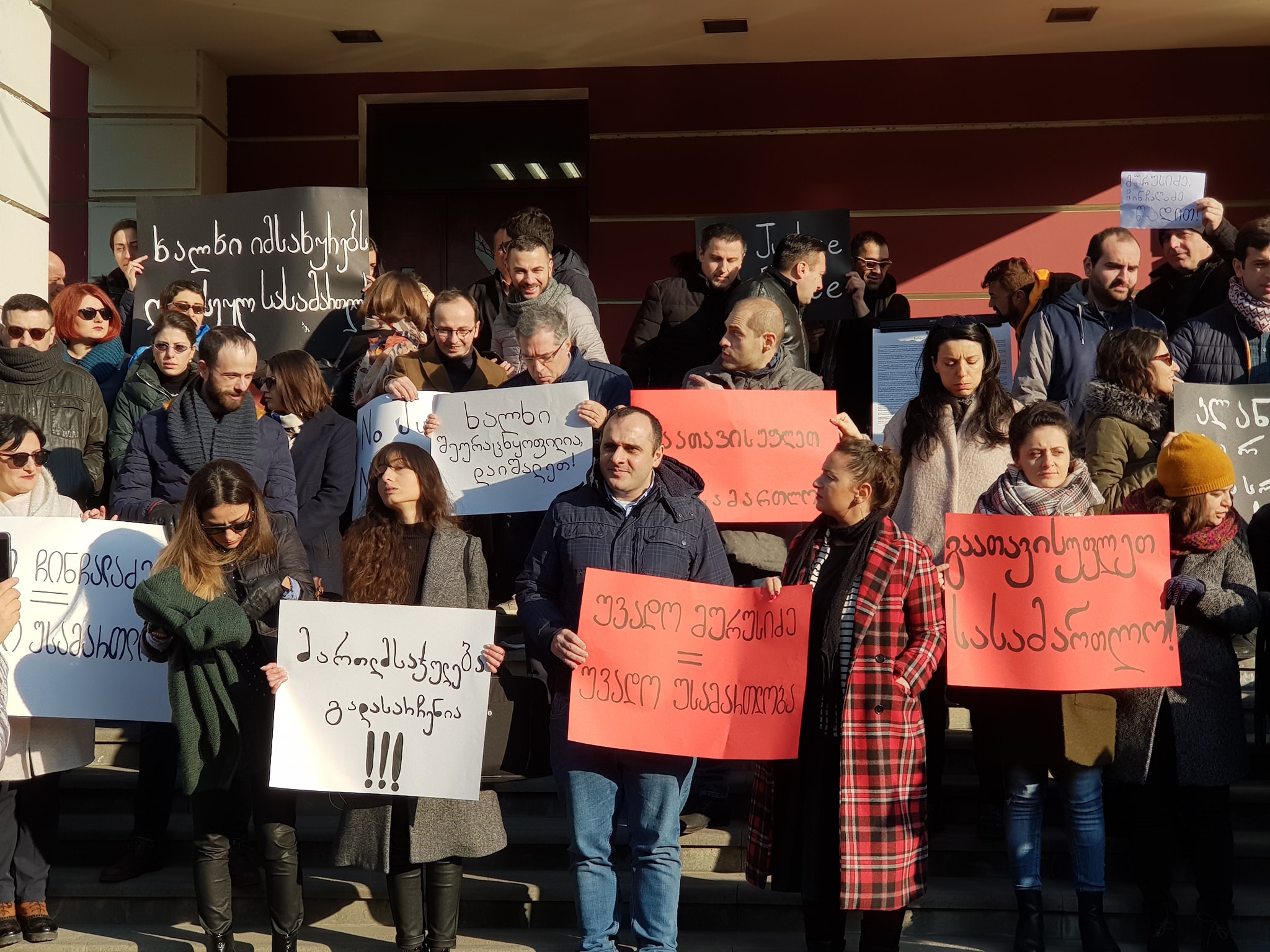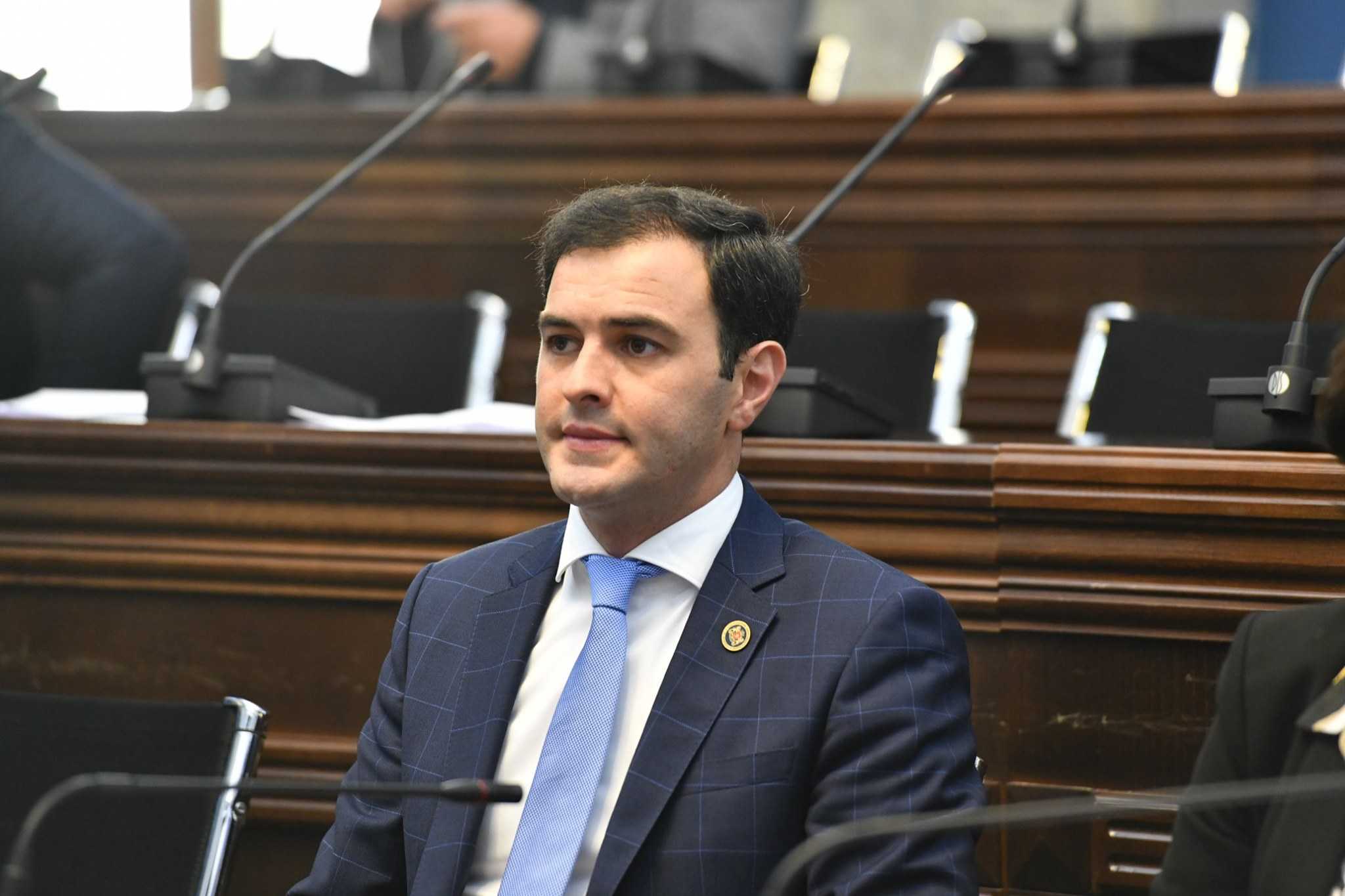

A group of judges being considered for Georgia’s Supreme Court has asked parliament to disregard their nominations, citing a campaign of ‘unprecedented pressure’ on the judiciary. Their nominations had been controversial after rights groups, the opposition, the Public Defender, and several members of the ruling party accused them of being compromised and condemned the ‘rushed’ confirmation process.
On Monday, all 10 nominees released a joint appeal asking that their candidacies no longer be considered.
They said they wished to put an end to the ‘unhealthy stir’ in parliament as well as what they called a campaign of ‘unprecedented pressure’ on the judiciary that ‘violated’ its independence.
The controversy began in December, after the High Council of Justice (HCoJ), the agency responsible for overseeing the judiciary, sent the list of the nominees to parliament to be approved for lifetime terms to the Supreme Court.
Both the list of nominees and the ‘rushed’ nature of the confirmation process met strong opposition from several rights groups, the opposition, and the Public Defender.
The head of Parliament’s Legal Affairs Committee, Eka Beselia, an influential MP from the ruling Georgian Dream party, ultimately resigned in protest over the issue.
[Read on OC Media: Legal committee head resigns amidst ‘crisis’ and ‘clan rule’ in Georgia’s judiciary]
‘To save the judiciary’
The nominees’ withdrawal letter came after a public protest in front of the HCoJ earlier that day by several non-governmental organisations, including the Georgian Young Lawyers’ Association, Transparency International — Georgia, the Georgian Democracy Initiative, and the Human Rights Education and Monitoring Centre (EMC).
In their manifesto and petition ‘to save the judiciary’, the groups demanded the resignation of members of the HCoJ who had voted in favour of the controversial list as well as MPs who supported considering the nominees.
It claimed that a ‘clan’ within the HCoJ ensured that the Georgian courts continued to operate under the ‘total control’ of the executive branch. They said this had not changed since the change in power in 2012, and that Georgian Dream had failed to properly reform the system.
The manifesto reiterated a call voiced by the Georgian Coalition for an Independent and Transparent Judiciary, a platform of 40 civil society groups, to introduce clear procedures for vetting judicial nominees instead of going forward with confirmations for the list ‘drawn behind closed doors’ at the HCoJ.
In a press briefing following the protest, the chair of the HCoJ Giorgi Mikautadze, dismissed the rally’s demands, accusing the groups of fighting for their own interest.
‘If the nominees were from non-governmental organisations, as has previously happened for Supreme Court justice nominations, everyone would be happy, but if the HCoJ and the common courts independently nominate candidates […] without outside interference, of course it will make them unhappy’, Mikautadze told journalists.
As soon as the list was sent to Parliament, Ana Dolidze and Nazi Janezashvili, both non-judge members of the HCoJ, criticised it for including judges with tainted reputations, who they claimed had been associated with politically motivated verdicts in the past.
On 27 December, three non-judge members at the HCoOJ unsuccessfully resisted the lifetime appointment of Levan Murusidze to the Court of Appeals. Murusidze received the votes of 11 of 14 council members.
Murusidze has been criticised by several civil society groups as being ‘biased’, and has come under fire for controversial rulings including on the Sandro Girgvliani murder case.
On 15 January, Janezashvili and Dolidze submitted a five-point proposal to parliament which they argued would ensure transparent and public judicial confirmations through open competition.
Cracks in the ruling party
The lifetime Supreme Court appointments has proved controversy even from within the ruling Georgian Dream Party.
The head of Parliament’s Legal Affairs Committee, Eka Beselia, resigned on 27 December, three days after the party announced they would hold parliamentary hearings on the list over her objections.
Beselia, a long-time ally of Georgian Dream’s founder and chair Bidzina Ivanishvili, openly criticised the party’s executive secretary and Parliamentary Speaker Irakli Kobakhidze for pushing ahead with a ‘rushed and unjustified’ confirmation process.
After a protracted silence, Ivanishvili openly condemned Beselia for disrespecting ‘party unity’, and several leading members of Georgian Dream hinted she could face expulsion from the party.
Beselia maintained that she and several allies in the party had ultimately stalled the ‘rushed’ confirmation process.
Nazi Janezashvili one of the HCoJ members opposing the nominations, told OC Media, that the nominees decided to give up on their candidacies after a statement on 12 January by Parliamentary Speaker Irakli Kobakhidze, who she said made clear that Georgian Dream had decided to drop the list.
According to her, the party did not have enough votes among their own members to approve the list.
On 12 January, Kobakhidze vowed to work on new criteria and clear procedures for judicial appointments before confirmations went ahead, a decision that Janezashvili called an ‘interim victory’.
‘This joint statement from all 10 judges indicates that we are dealing with a clan indeed’, Janezashvili told OC Media.
‘It’s important that judges raise their voices and refuse to obey the clan’, said added, but said she did not currently see any sign of this.
Parliament will have to confirm 20 supreme court justices this year.
The Georgian Dream party have said they plan to discuss the supreme court justice confirmation on Thursday.









